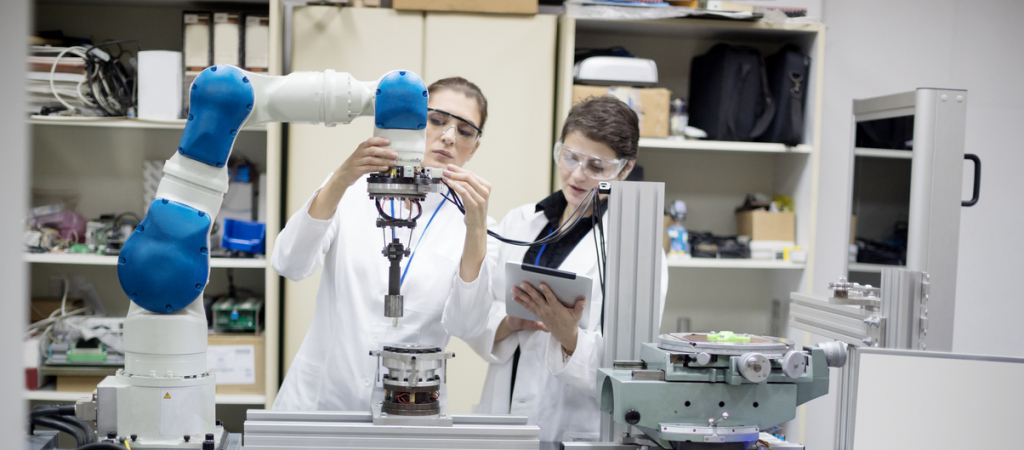Why Should You Choose an Analytical Chemistry Training Course?

The ultra-modern instruments for chemical analysis are the next step in evolution in the conventional chemical analysis methods which are normally limited to measuring volume and mass.
The earlier methods required slow and required significant time to get the testing done. These were also plagued with determinate and indeterminate errors. Fortunately, the modern instrument-based analytical technique has come to the aid of the industry.
With quality and accurate testing of chemicals being increasingly required as governments impose strict regulations on chemical production and testing, there is a growing demand for professionals who have successfully studied and got certified in analytical chemistry training courses.
This course teaches students the method of using ultra-modern testing instruments that help to save time, improve data accuracy and sensitivity and make quicker decisions when analyzing samples during the production stage to determine the product’s feasibility potential.
What are Analytical Chemistry Training Courses?
Analytical chemistry training courses form a branch of chemistry that aims at dissecting the chemical and biochemical components of any material or compound. It is a special branch of chemistry that splits substances apart and examines their ingredient components.
Analytical chemistry has become extremely important in various industries, such as:
- Healthcare and medicine
- Chemical production
- Forensic police investigations
- Astronomy
There are various methods and techniques that analytical chemists use to separate, identify and label the relevant components that help to determine the structure of any chemical substance.
Some of the most common instrumental techniques that analytical chemists need to use while experimenting and testing are:
- Electrochemical analysis
- Spectroscopy
- Microscopy
- Chromatography
These tests form the fundamental tasks of an analytical chemist who is trained and certified after successfully passing an analytical chemistry training course from a leading industry-training institute in India.
An analytical chemist is tasked with determining several chemical and physical aspects of samples, such as:
- Temperature changes
- Electrical resistance or conductivity
- Phase transitions of materials from absorption or liberation of heat
- Emission or absorption of electromagnetic radiation
- Changes in viscous behavior
- Changes in acidity level of the medium
In the last 40 years, analytical chemists have been able to stretch the potential of chemical analysis using high-tech testing instruments.
The advances in chemical analysis instruments have helped the analytical chemists to boost laboratory outputs, gain detection levels which were previously not possible, perform analysis of multiple components in a single sample and detect traces of an analyte in complicated samples.
Who can choose to undergo Analytical Chemistry Training Courses?
Aspirants who have a strong science background and good technical skills along with an eye for detail can become successful analytical chemists. There are a large number of methods that analytical chemists use to determine the chemical composition of various substances.
The main aim of analytical chemistry is to understand the structural components of sample substances and the manner in which they behave when experiencing varying conditions.
There are several strong aspects that compel serious students to choose analytical chemistry training courses from leading technical education and training institutes in India. Some of the top reasons that attract thousands of students to become analytical chemists are:
Completely Quantitative Technique
Gas chromatography is a completely quantitative technique that is equipped with software that is designed to provide accurate data, such as peak area counts for generating quantitative estimates.
High Sensitivity
Gas chromatography provides a vast range of detectors, which includes thermal conductivity detector (TCD), flame ionization detector (FID), nitrogen phosphorus detector (NPD), electron capture detector (ECD), flame photometric detector (FPD) and mass selective detector (MSD) to name a few.
These detectors are extremely sensitive and can effectively detect low levels of specific compounds that have hetero atoms, such as sulfur, phosphorous, nitrogen, and halogen.
Sophisticated software
Gas chromatography software is designed for normalization, peak, and baseline optimization as it results in substantial improvement in reporting the results in real-time. This makes performing gas chromatography more efficient and effective for analytical chemists.
Storing analysis records
The ultra-modern gas chromatography equipment allows analytical chemists to keep a detailed record and store the results of various experiments and tests in hard and soft copies. This is an excellent way to make your work more efficient and easier when you want to refer to an earlier testing process.
It is essential that aspiring students choose the leading and most reliable technical education and training institutes in India so that they are well prepared to face the challenges that the industry has to offer.
